Profile
Mrs Gifty Dansoah Appiah – raising the next generation of God-fearing children

It has always been the wish of every good mother to properly cater for her children financially and spiritually. This is what Mrs Gifty Appiah is doing.
For 20 years, Mrs Appiah has been working to create a safe environment for children to thrive and achieve their dreams.
She began her career as a Programmes Officer of African Centre for Human Development. Today, she serves in her new role as the National Director of Compassion International Ghana, a Christian Child Advocacy Organisation at Madina, Accra.
Mama Gifty, as many call her, partners some government agencies and civil society organisations to reach out to deprived children, especially those in the rural communities.
She had previously performed similar functions at other non-governmental organisations and has been steering the affairs of Compassion International for the past three years.
Journey
Mrs Dansoah Appiah, speaking to The Spectator, admitted that it had not been easy in her pursuit to meet the needs of the less-privileged in the community she operates.
She said that notwithstanding the challenges, the non-governmental organisation was determined to extend support to hard-to-reach areas, as it had taken upon itself to reduce poverty, increase access to education and mitigate the impact of sexual violence against young girls.
Poverty, discrimination and other forms of inequalities, she noted, had denied thousands of children their right to education while thousands of children under five years still died from preventable diseases in this nation.
“This and many other factors are the reasons for my relentless efforts to embark on a mission to create a better future for these children.
“I wake up every day, I dream every night about what we are going to do to protect and support our young children in the country and the world as a whole. But in all this, we are able to get them by the grace of God,” she said.
Compassion International
Apart from its corporate social responsibility (CSR), Compassion International has partnered local churches to deliver holistic child development interventions to children and the youth, and to address the cognitive, spiritual, physical and socio-emotional needs of young people.
Operating with the tagline: ‘Releasing Children from Poverty in Jesus’ Name’ , Mrs Dansoah Appiah was impressed that their benevolent spirit was helping to transform the lives of children for the better.
“We want our children to grow up to become responsible Christian adults and serve as agents of transformation in communities they find themselves. We ensure that every child we serve is loved and protected. Children are precious gifts of God, and if we serve them we are, by extension, serving God,” she stressed.
Expressing delight in the positive and efficient role she continued to play at Compassion International, Mrs Appiah called on well-meaning individuals and other non-governmental organisations not to relent in their effort to lessen the plight of needy children.
Impact
Mrs Dansoah Appiah said that Compassion International had contributed a total amount of about GH₵200,000.00 to the COVID-19 Fund, Ghana Health Service and Noguchi Memorial Institute to help combat the spread of the disease.
“We have provided targeted food response to our beneficiary households to the tune of GH₵ 1.8 million. We have also provided face masks for all our beneficiaries amounting to GH₵ 1.2 million,” she noted.
This, she explained, was done through the benevolence of individuals, church and other foreign donors based in the United States of America (USA), United Kingdom (UK), Germany, and Switzerland.
Education
Mrs Dansoah Appiah holds Master of Science (MSc) Degree in Transportation Planning and Policy from the University of Newcastle, UK, and a Bachelor of Science (BSc) in Planning from the University of Ghana. She is a product of Aburi Girls’ Secondary School in the Eastern Region.
As the former Acting Country Director of World Vision Ghana between 2014 and 2015, she was recognised for her innovation and contribution to child well-being and poverty reduction due to her exemplary leadership. Early this year, she won the prestigious International Nobles Award for ‘Men and Women of Integrity’.
The mother of four said that being a leader was a privilege which she did not ” take lightly”, because it was not everybody who came from a rich home and that she would continue to be a role model for the youth.

“I like the opportunity Compassion International offers me to contribute to this noble cause. I must always be the voice for the voiceless and reflect the Christian values in me as a follower of Jesus Christ,” she added.
Advice
Mrs Dansoah Appiah advised the youth to remain patient in life and steadily work towards their goals “since with God, everything is possible”.
“Life is not a competition. We are all uniquely created by God and He has space for each of us in this life. Identify your life purpose, work towards it with integrity, sacrifice and discipline. Surround yourself with quality people who make positive contribution towards your goal,” she said.
Mrs Dansoah Appiah, who hails from Kwahu Asakraka in the Eastern Region, is married to Apostle Samuel Otu Appiah, Head of the Winneba Area Head of the Church of Pentecost. They have four children who are Dr Jedidiah, Joel Otu, Jaydrein and Janel.
By Geoffrey Buta
Profile
Albert Litela Obidiaba: The artist who wove Ghana’s soul into the King’s Baton
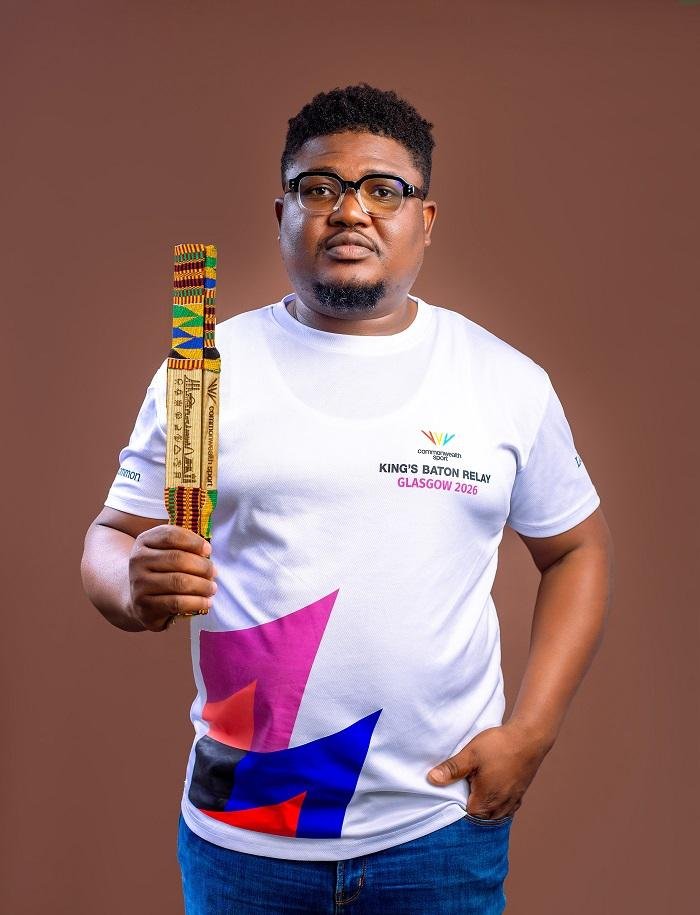
When the world’s eyes turn to the King’s Baton on its global journey, one of Ghana’s most profound artistic stories travels with it. It will be a story of creativity, culture, and national pride crafted by Albert Litela Obidiaba.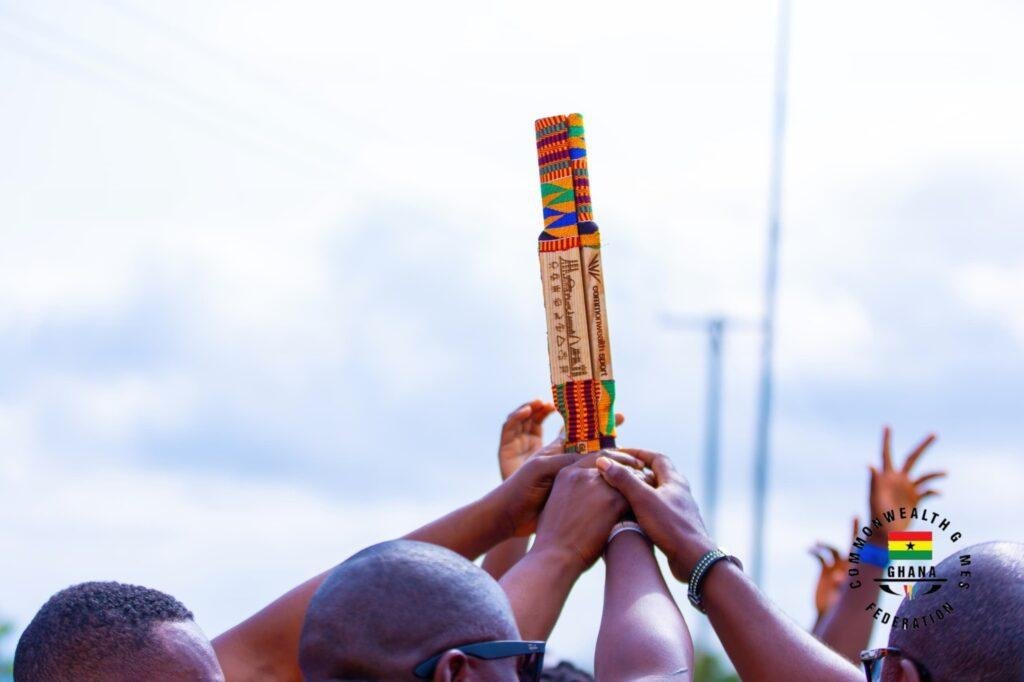
From the quiet town of Old Baika in the Oti Region, Albert’s journey as an artist has always been about telling stories. It is not just through words, but through symbols, textures, and meaning.
“From a young age, I was drawn to the power of art, knowing how colours and textures can capture not just emotion but culture and identity,” he recalls.
Today, his name has become synonymous with innovation rooted in traditional bridge between Ghana’s past and its global creative future.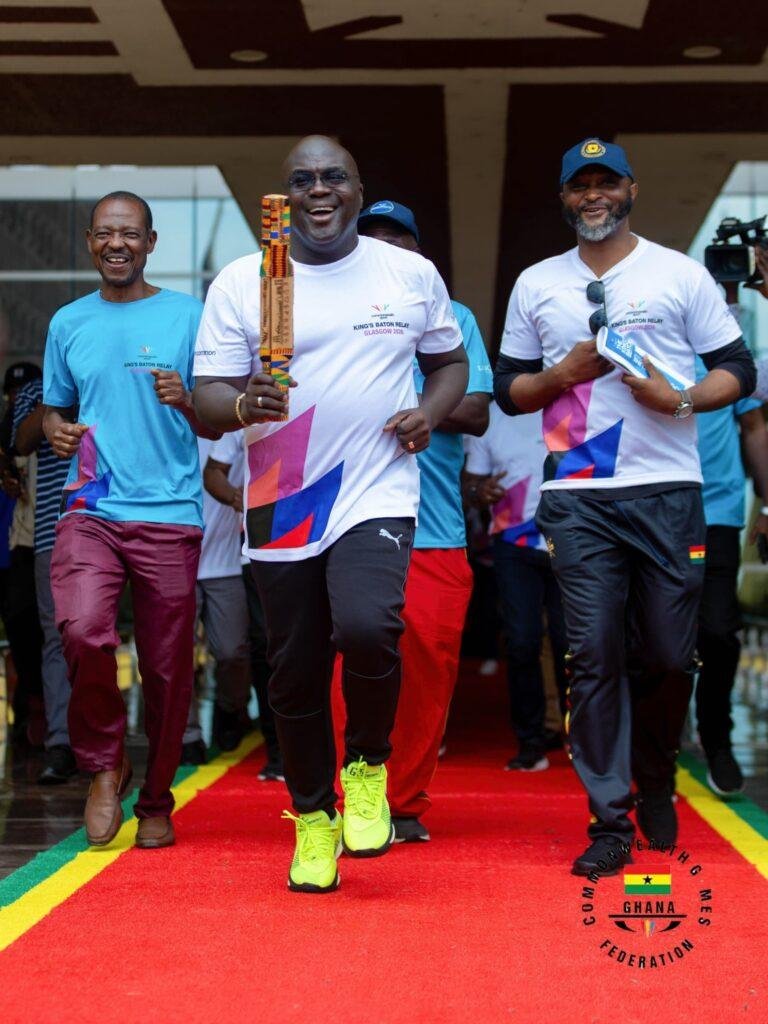
Albert’s love for art was born from curiosity. Surrounded by the vibrancy of Ghanaian culture; the patterns of kente, the stories behind Adinkra symbols, and the textures of daily life, he began sketching and crafting early on.
“Simple things told deep stories,” he says. “That fascinated me.”
As he matured, his art evolved into a personal mission to preserve and reinterpret Ghana’s heritage for a modern audience. His style reflects a seamless blend of culture and contemporary design, each piece a narrative of unity, history, and pride.
“I see art as storytelling through form and symbolism, it should feel rooted in purpose yet speak to today’s world,” he explains.
When the call came to design Ghana’s version of the King’s Baton, Albert saw it as both a national duty and a creative calling.
Recommended by mentors like Mr Charles Osei Asibey, who trusted his talent and understanding of Ghanaian symbolism, he embraced the project wholeheartedly.
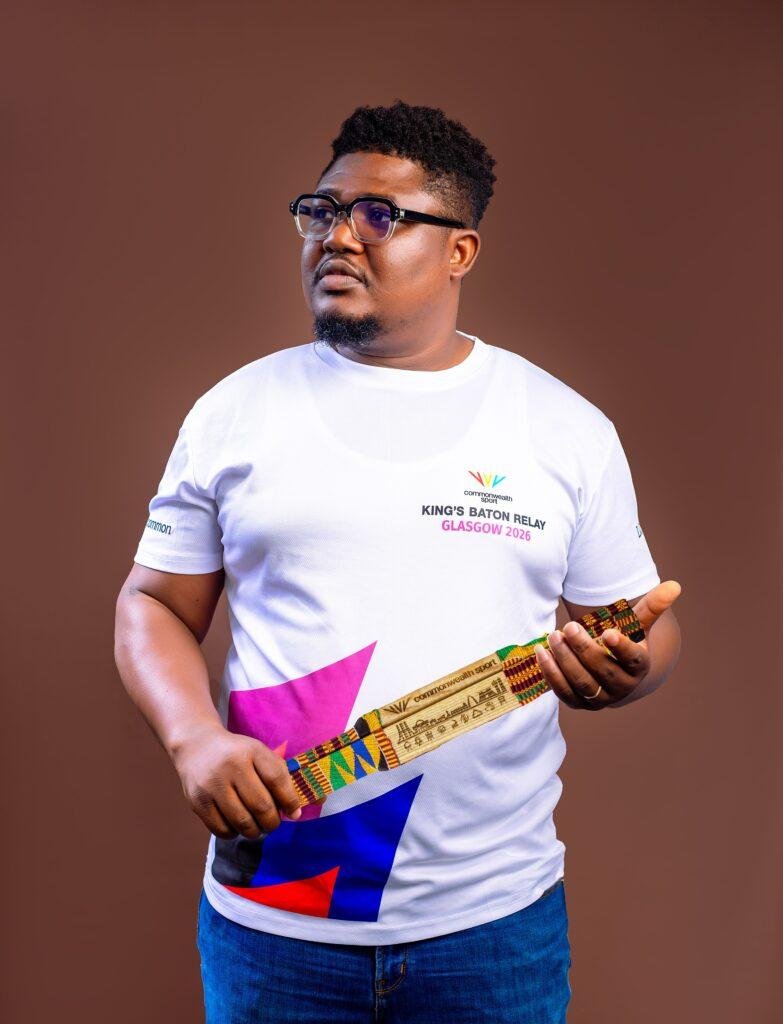
His vision was clear; to create a piece that would embody unity, pride, and the enduring spirit of Ghana.
Drawing from traditional motifs, he integrated textures inspired by kente weaving, representing hard work, continuity, and creativity. The golden tones symbolise strength and dignity, while the contours and natural motifs mirror Ghana’s landscapes and people.
“The King’s Baton had to tell our story of who we are, what we value, and how we see the world, it is more than art, it is identity in motion,” he said.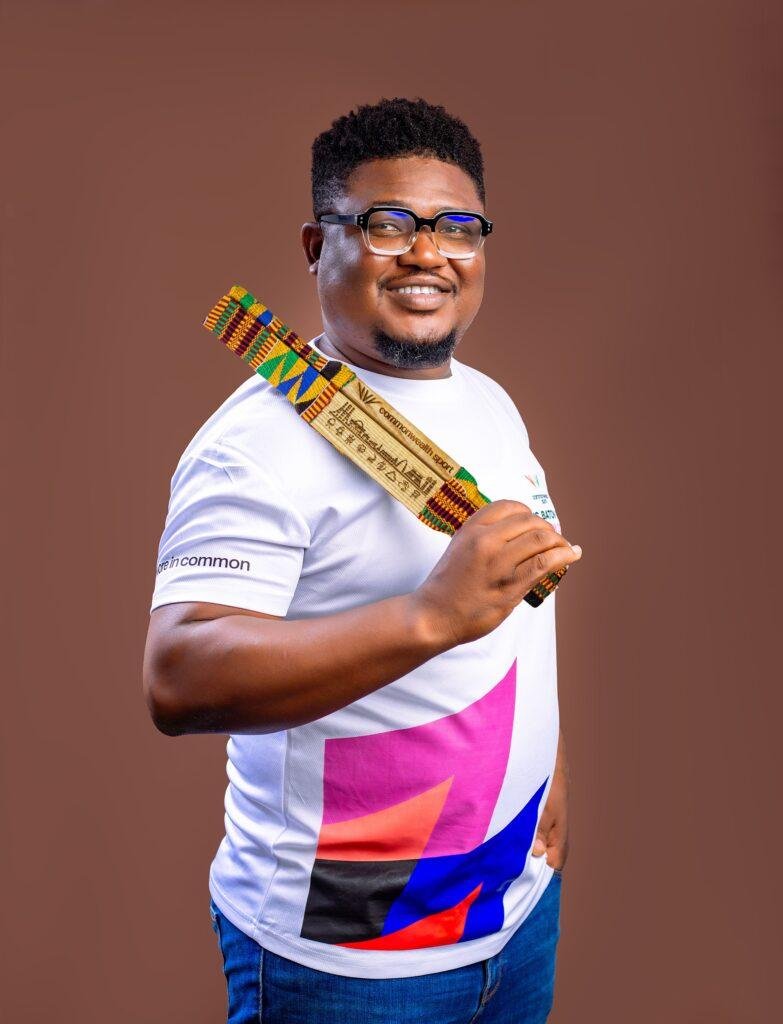
Every etch, every pattern carries meaning. From concept to completion, the entire process took three intense weeks which were filled with research, design sketches, consultation, and collaboration with skilled artisans.
“It was days and nights of work, but a lifetime of meaning,” he says with quiet pride.
Creating a design that represents all of Ghana’s diverse cultures was no small feat. Albert had to balance aesthetics, authenticity, and technology thereby using sustainable wood, carefully treated and certified, to reflect the nation’s commitment to nature and preservation.
“It wasn’t easy finding the right mix,” he admits. “But those challenges pushed me to think deeper. They made the final piece stronger — both artistically and symbolically.”
For Albert, Ghanaian culture is both muse and message. His works echo the values of unity, strength, persistence, and wisdom, drawn from Ghana’s traditions.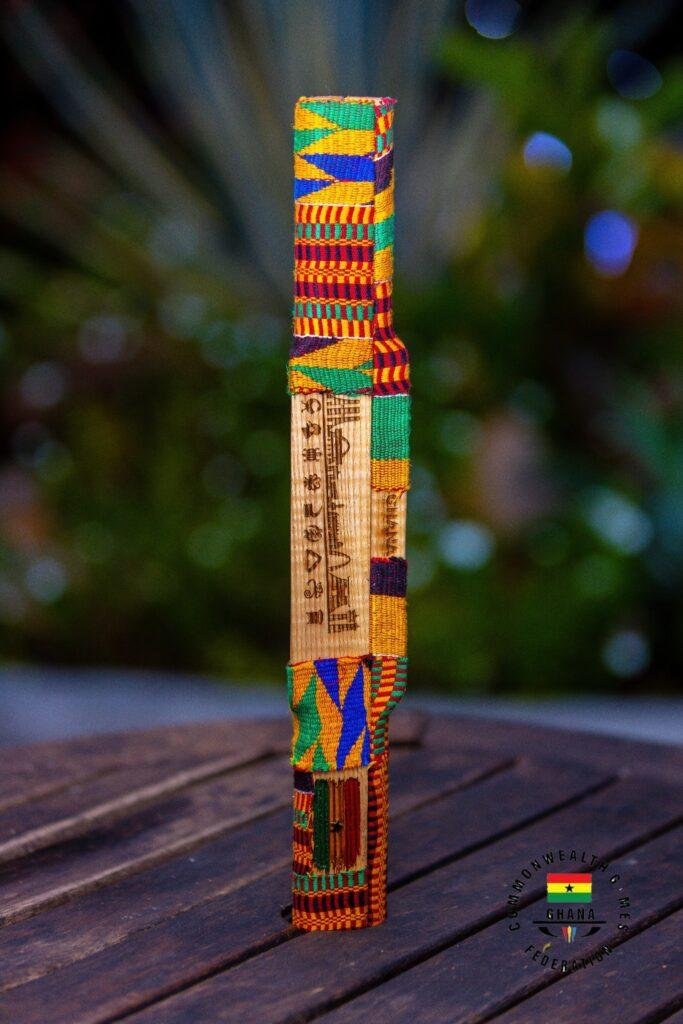
“Art preserves who we are and every line and symbol tells a story of belonging,” he said, and believes art is one of the most powerful tools for building national pride.
Designing the King’s Baton has been a defining moment in his creative journey and that it deepened his appreciation for cultural storytelling. “It taught me that creativity is also a form of service,” he said.
The experience has opened new professional doors, but more importantly, it gave him a renewed sense of purpose making him embrace a call to national duty.
“My soul will be glad even after my days on earth are over,” he said beaming with smiles.
Beyond the King’s Baton, Albert has worked on numerous projects celebrating Ghanaian identity through contemporary art and design. His ongoing works explore symbolism and heritage in new forms which includes blending materials, stories, and styles from across Ghana’s regions.
He is currently preparing projects that continue the conversation the baton began. They are about unity, creativity, and Africa’s evolving artistic voice.
To young artists aspiring to make their mark, Albert’s advice is for them to believe deeply in their craft and that the world is always looking for authenticity “which comes from knowing who you are and where you come from.”
On how he wants to be remembered, he said, “I want to be remembered as an artist who used creativity to celebrate culture and connect people. If my name is remembered as the one who designed Ghana’s version of the King’s Baton, that will be enough, because it means I carried Ghana in my hands, and shared her with the world.”
By Esinam Jemima Kuatsinu
Join our WhatsApp Channel now!
https://whatsapp.com/channel/0029VbBElzjInlqHhl1aTU27
Profile
Survival to service: Margaret Odame Donkor the breast cancer preacher
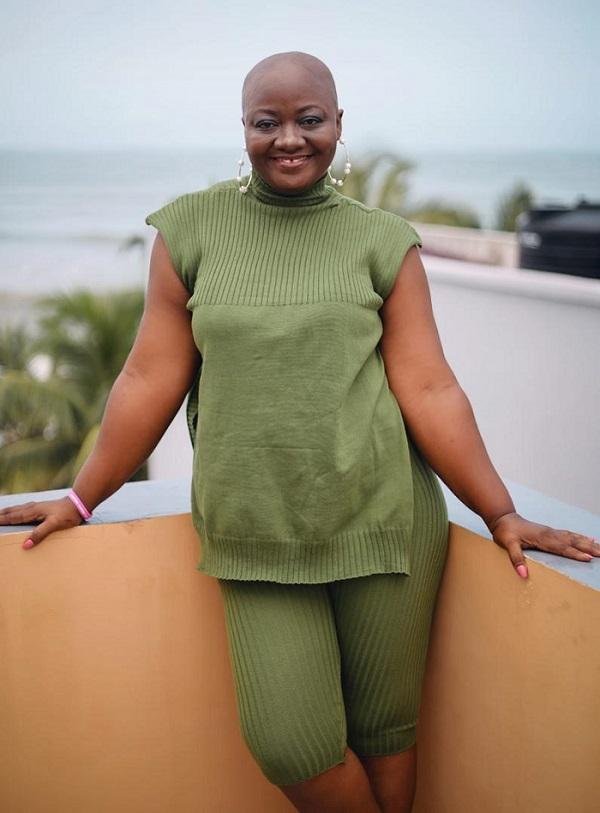
A ‘trotro’ bus heading to Nsawam was filled with the usual sounds from conversations, music, and sometimes a preacher delivering a message.
But when Margaret Odame Donkor rises to speak, she does not preach salvation or sell herbal remedies. Instead, she shares her journey as a breast cancer survivor, urging passengers to examine their breasts regularly, seek medical help early, and never lose hope.
Her pulpit is not a church, but the crowded minibuses of Ghana’s public transport system. Her message is not about repentance, but about survival.
She urges women to check their breasts regularly, encourages men to support their wives during health challenges, and reassures everyone listening that a cancer diagnosis is not the end of life.
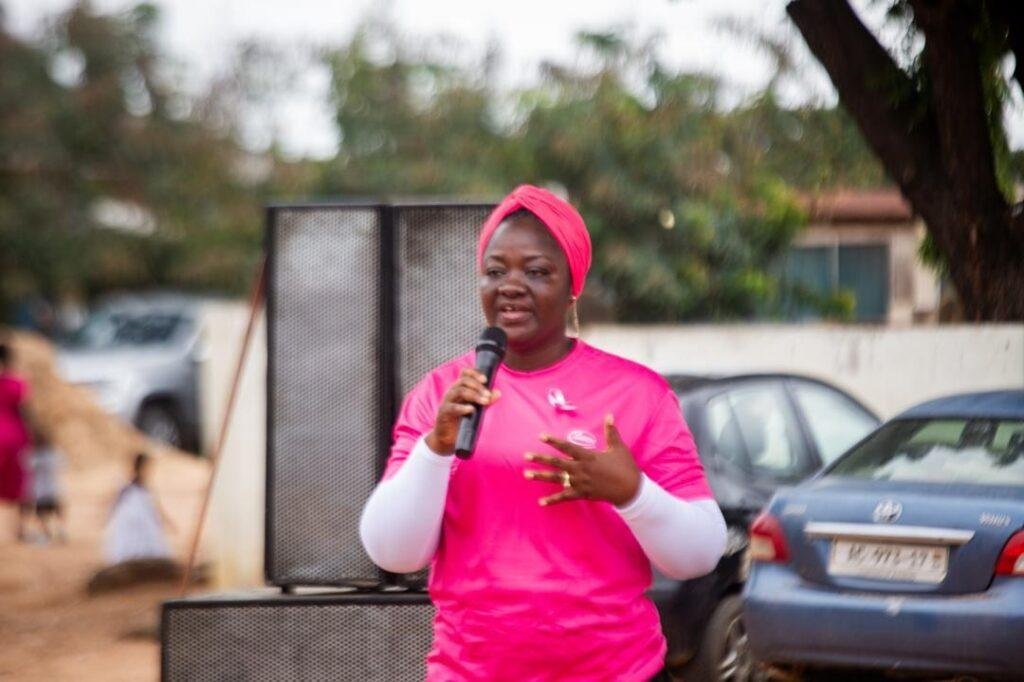
For Margaret, creating awareness is more than a duty-it is a calling born out of personal pain, fear, and triumph.
Her words carried weight because they come from lived experience.
At age 48, Margaret has walked through the valley of fear and pain, battled stage three invasive carcinoma, and emerged not just a survivor but an advocate determined to educate others.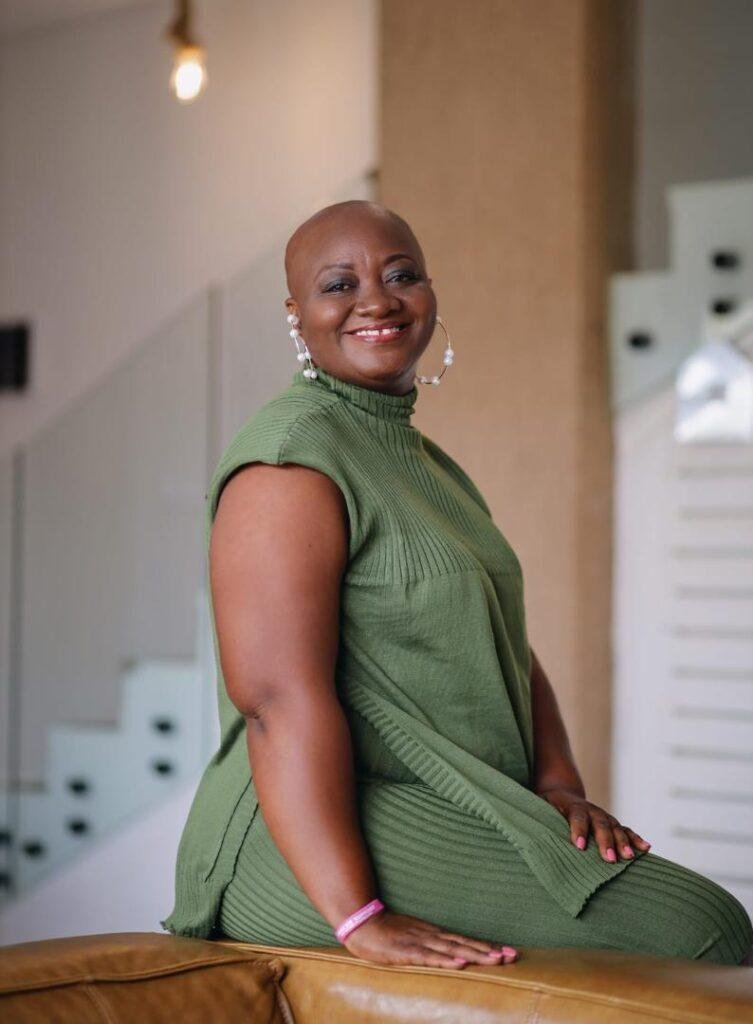
Cancer journey
Margaret’s encounter with breast cancer stretches back decades. At 22, she discovered a lump in her left breast. It was removed and declared benign. Relieved, she skipped regular checks and moved on. Then in 2021, the lump reappeared—this time spreading toward her armpit.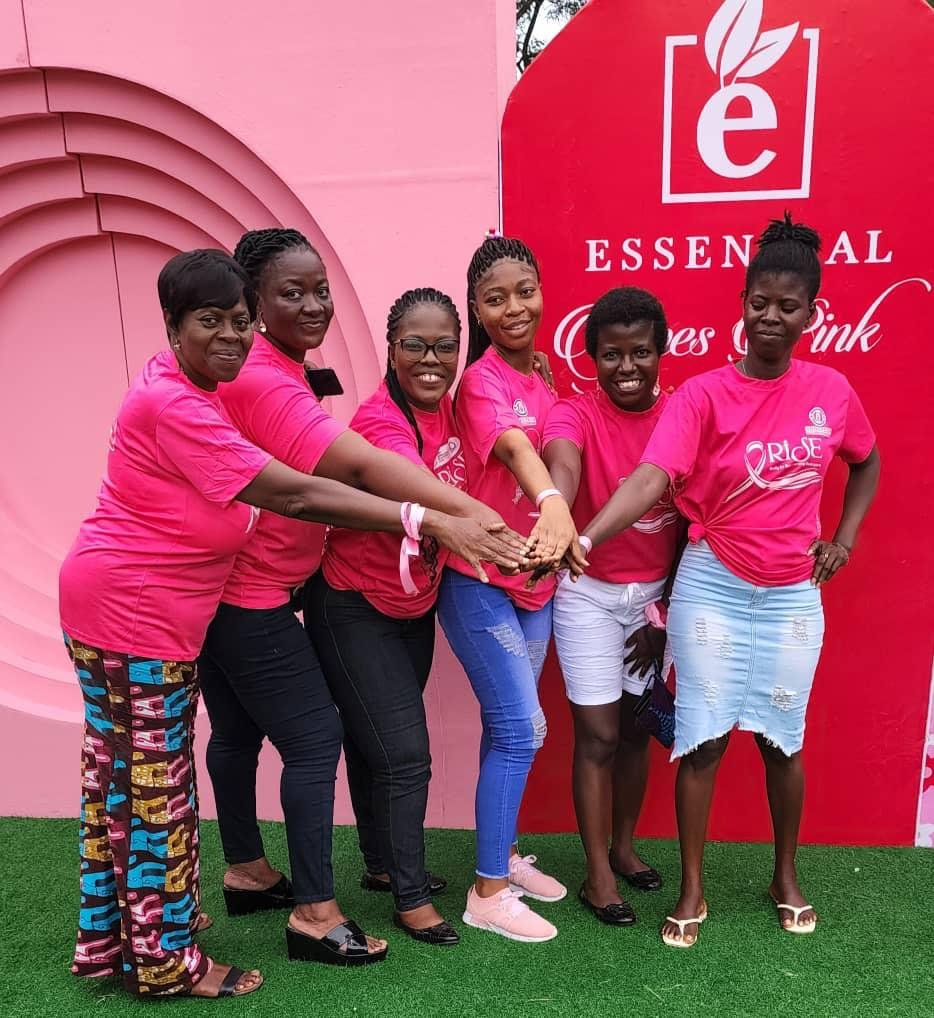
At a church screening in October 2022, doctors detected suspicious lymph nodes. Further tests confirmed her worst fear: stage three invasive carcinoma.
“It wasn’t easy,” she recalls softly. “But my faith in God kept me strong. My husband, children, family, friends, and colleagues formed an army behind me. Their prayers, visits, and encouragement gave me the courage to fight.”
“Be grateful every day because you never know what tomorrow may bring. No one has it all, but with love and support, you can endure,” she stated.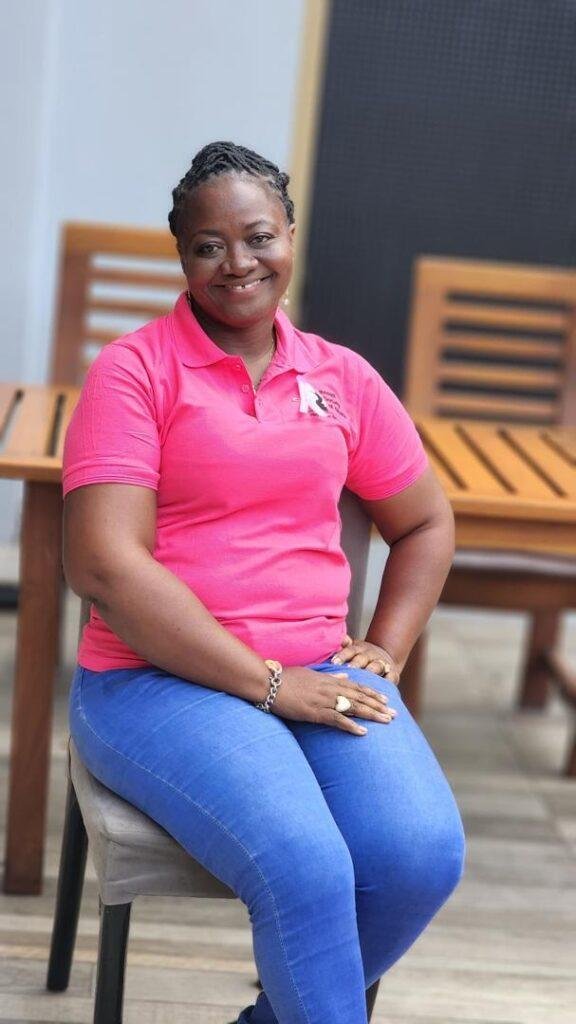
Her greatest fear remains recurrence and not living long enough to see her children graduate and become the people she dreams for them to be.
Before cancer disrupted her life, Margaret had found purpose in interpretation. In 2020, a friend spotted a Judicial Service vacancy and encouraged her to apply. After years of unsuccessful attempts at government jobs, she was reluctant, but she tried once more. This time, she succeeded and was posted to the Eastern Region, her home.
Today, she works at the Nsawam District Court, one of the busiest in the area. On a typical day, she arrives at 7:30am, prepares dockets, and confers with magistrates. She interprets proceedings in Twi, Ga, Hausa, and occasionally Ewe, ensuring that justice was accessible to all.
Her role is demanding. Cross-examinations require her to switch quickly between English and local dialects, while marriages often call for interpreting vows in couples’ preferred languages. Still, she thrives. “The registrars and magistrates I’ve worked with have been amazing. They make the environment very comfortable,” she stated.
Beyond the courtroom, Margaret is also an entrepreneur. In 2017, she founded Nubreed Décor, an events decoration business born from her childhood love for beautifying spaces. She recalls cutting paper decorations as a child and helping her cousin rent out chairs and decorate venues.
Balancing décor with court work was tough, and her health struggles after surgery made it even harder. Radiation left her with persistent rib pain, forcing her to slow down. “Now I hire more hands, which makes business expensive, but it helps me achieve my goals,” she explained.
Her biggest challenge as an entrepreneur remains finance. “The event industry is huge, but I have to work at my own pace and focus on my niche,” she admited.
Cancer changed how Margaret values people and relationships. She learned that those you least expect often become your strongest supporters. She urges families to stand by patients with prayers, encouragement, and financial support, reminding society that a cancer diagnosis is not the end of life.
Her advocacy extends beyond awareness talks. She dreams of establishing a counselling centre for young people and hopes Ghana will expand access to mammograms and radiotherapy centres. “Every patient deserves a chance at survival,” she said firmly.
She urged the youth to live peacefully and be their brother’s keeper, learn to be content and rely on God.
To women, she asserted that, “love yourselves and make breast checks routine while calling on Ghanaians to be open-minded, avoid being judgmental, and show love.
By Esinam Jemima Kuatsinu

 Profile6 days ago
Profile6 days agoAlbert Litela Obidiaba: The artist who wove Ghana’s soul into the King’s Baton

 News6 days ago
News6 days agoDaddy Lumba’s wife, children run to court to injunct December 6 funeral arrangements

 News1 week ago
News1 week agoPresident Mahama to meet Auditor-General, Chief Justice and Attorney-General over misuse of public funds






